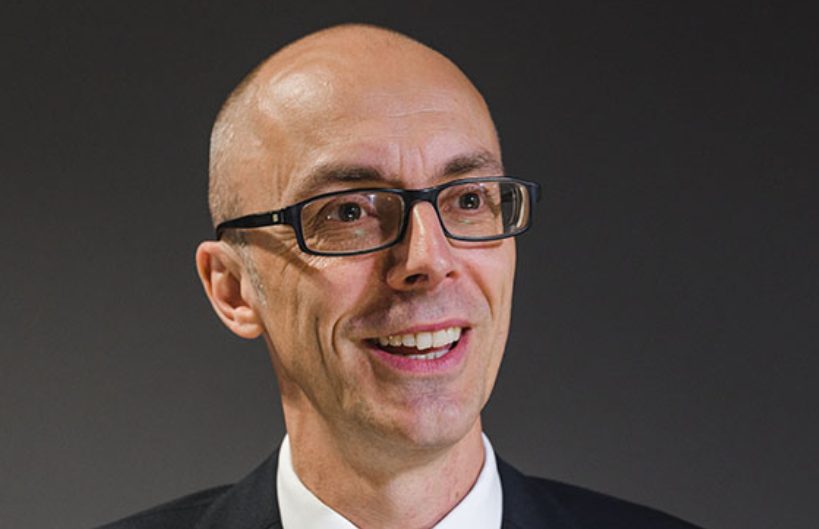Legacy Park Ltd’s new Chief Executive, Dr Chris Low, has outlined an ambitious vision for Sheffield Olympic Legacy Park which puts health at the heart of the City Region’s future economic growth.
Dr Low, who started his role in August, said: “Sheffield Olympic Legacy Park is an exemplar of open, inclusive innovation that aims to have a dramatic and positive impact on the prevention and management of chronic ill health.
“Fuelled by Olympic legacy values, the Park also aims to be a model of urban renewal and social mobility for post-industrial cities.”
Legacy Park Ltd is the organisation set up to facilitate delivery of Sheffield Olympic Legacy Park and is a partnership between Sheffield City Council and a number of other key institutions from across the city region.
Dr Low is driving the development of a world-class health and wellbeing research eco-system and is further building R&D capacity on the unique site, attracting and supporting global health and wellbeing companies to invest and co-locate on the Park.
He is working closely with Scarborough Group International (SGI) who are spearheading the physical build of the next phase of the world’s only Olympic legacy park outside a host city.
SGI are about to submit a forward investment Master Plan which is expected to generate over 5,600 high value jobs and includes the creation of a 100,000 sq ft Enterprise Centre to support fledgling businesses in the health, wellbeing, sport and activity sectors.
The Park, based in the east end of Sheffield, has already welcomed a diverse community of innovative organisations ranging from global corporates, public sector bodies, start-up and scale-up SMEs, elite sport, university researchers, third sector groups, investors, and further education.
Sheffield Hallam University’s flagship Advanced Wellbeing Research Centre (AWRC) on the site offers world-class facilities for multi-disciplinary health and physical activity research in collaboration with the private sector, charities, and the community, with a focus on taking services and products from concept to market.
The AWRC’s rolling Accelerator Programme has attracted local, national and international innovator start-ups and SMEs and this is fuelling an increasing number of business accelerator programmes focusing on health and sport tech.
They include JT Rehab, which has developed a device to help hospital patients improve lower limb muscle strength and recover quicker from the harmful affects of hospital acquired deconditioning. The Programme has provided design to manufacture support as well as networking which has led to the ‘S-Press’ device being trialled in an NHS Trust.
Sheffield Olympic Legacy Park already houses the National Centre for Sport and Exercise Medicine and the National Centre of Excellence for Food Engineering and major, new health care, regeneration and sporting projects totalling more than £200m have also been unveiled.
These include a ground-breaking diagnostic imagery research hub for Canon Medical Systems Europe as well as plans to create a new National Centre for Child Health Technology (CCHT).
Dr Low said: “The intensity of the collaborative intent of the members of the Park’s community is amplifying and multiplying their impact through bringing multi-disciplinary, complementary approaches to the health and wellbeing challenges of our age.
“The hot-housing of health and wellbeing skills and innovation – which not only drives economic growth and community regeneration but also delivers whole population health gains – is already attracting national and global interest.
“I think this is a moment in time; we have the chance to create and deliver a collective vision for the future. I am genuinely excited for what we can achieve and the positive impact we can have by working with the local community and local businesses already established in the area.”
The approach is already producing new products and services developed and commercialised for the NHS and consumer markets.
A perfect example is the data-supported, hand-held device for people with insomnia, SleepCogni, developed in Sheffield by Richard Mills. The company has just raised nearly £600,000 through a crowdfunding campaign after successful clinical trials at the AWRC which also helped SleepCogni to be registered for medical use by the US Food & Drug Administration.
Sheffield Olympic Legacy Park is also playing a key role in ensuring that these industries and innovators can have access to a workforce with the right skills base. Indeed, a national project to equip young people with the digital skills to excel in health and sport science careers is being spearheaded by UTC Sheffield Olympic Legacy Park.
The Digital Skills for Health Project launched last week focuses on ensuring that students and staff at UTCs across the country have the latest technology skills that employers in the health and sport science sectors need.
And Dr Low stresses the Park’s key role as an enabler of social mobility within local communities and the wider Sheffield City Region.
He added: “A local child can join the excellent Oasis Academy from the age of two, progress to further education at the UTC which specialises in health, sport and digital and either get a job with one of the tech companies on site or progress to a degree with Sheffield Hallam University.
“The Park is designed to encourage physical activity especially as prevention of ill health later in life should start in childhood. The excellent and growing sporting and leisure facilities on site, alongside plans for an active travel hub, are also key attractors for a modern skilled workforce.”
